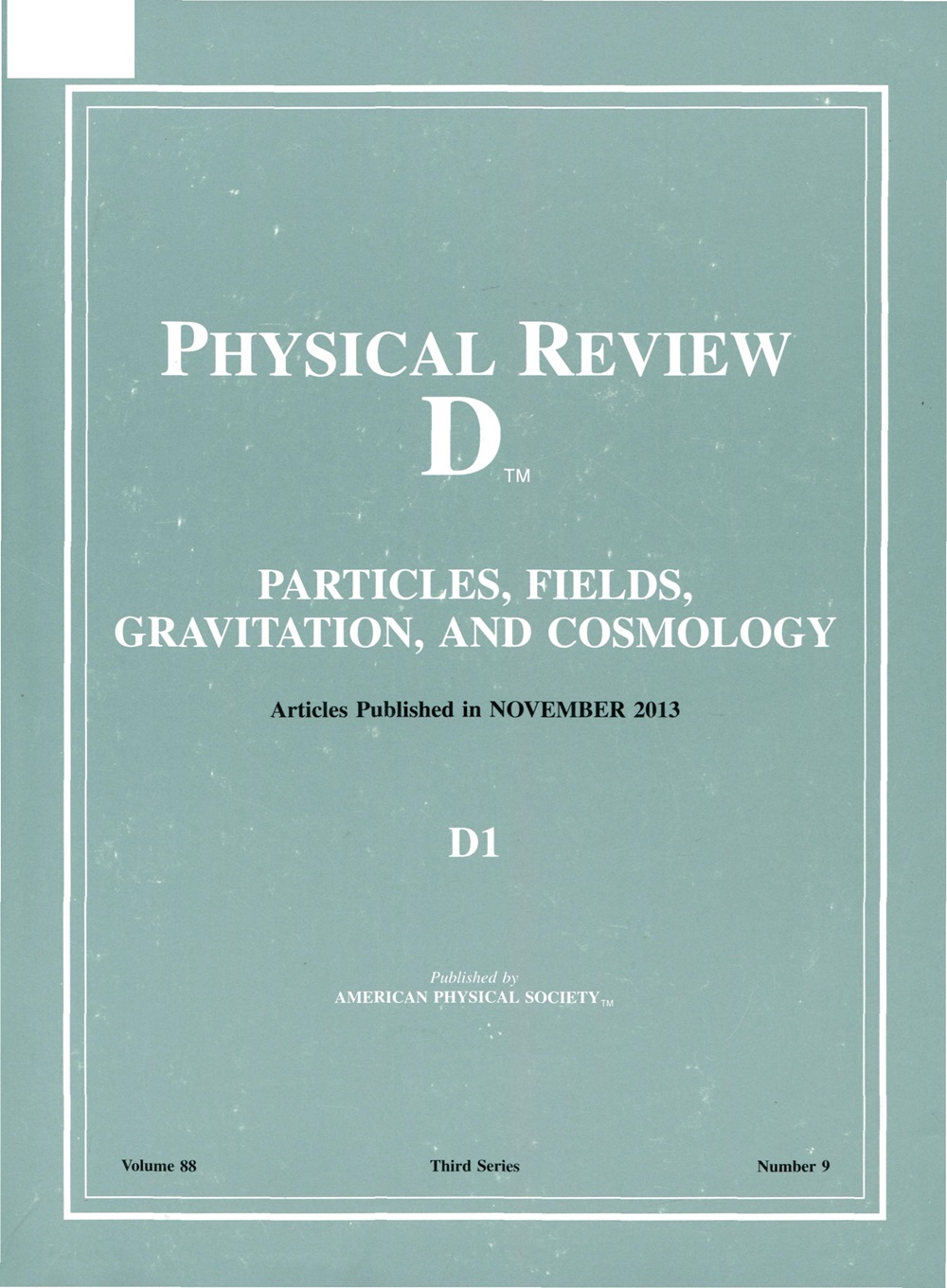Quantifying quantumness in (A)dS spacetimes with Unruh-DeWitt detector
IF 5.3
2区 物理与天体物理
Q1 Physics and Astronomy
引用次数: 0
Abstract
Probing quantumness in curved spacetime is regarded as one of the fundamental and important topics in the framework of relativistic quantum information. In this work, we focus on the theoretical feasibility of probing quantum properties in de Sitter (dS) and anti–de Sitter (AdS) spacetimes via detectors. By employing the Unruh-DeWitt detector coupled with a massless scalar field, which is treated as an open system, quantum uncertainty and quantum coherence in both dS and AdS spacetimes are investigated. Our analysis reveals that the acceleration in dS spacetime and the boundary conditions in AdS spacetime significantly impact the detector’s evolution in the initial stage. Notably, both of the uncertainty and coherence will oscillate with the initial state being in a superposition state, however the high temperature is able to suppress their oscillation. Interestingly, it is found that the constant values of the final uncertainty and coherence are identical as those in dS and AdS spacetimes, which are determined by the ratio of energy gap to temperature. Hence, the current exploration offers insight into quantumness in dS and AdS spacetimes, and might be helpful to facilitate the curved-spacetime-based quantum information processing.用Unruh-DeWitt探测器量化(A)dS时空中的量子量
弯曲时空中的量子探测被认为是相对论量子信息框架中的基本和重要课题之一。在这项工作中,我们重点研究了通过探测器探测德西特(dS)和反德西特(AdS)时空中量子特性的理论可行性。采用Unruh-DeWitt探测器耦合无质量标量场,将其视为开放系统,研究了dS和AdS时空中的量子不确定性和量子相干性。我们的分析表明,dS时空中的加速度和AdS时空中的边界条件在初始阶段对探测器的演化有显著影响。值得注意的是,当初始态处于叠加态时,不确定性和相干性都将发生振荡,但高温能够抑制它们的振荡。有趣的是,我们发现最终的不确定度和相干度的恒定值与dS和AdS的恒定值相同,它们是由能隙与温度的比值决定的。因此,当前的探索提供了对dS和AdS时空中的量子性的洞察,并可能有助于促进基于弯曲时空的量子信息处理。2025年由美国物理学会出版
本文章由计算机程序翻译,如有差异,请以英文原文为准。
求助全文
约1分钟内获得全文
求助全文
来源期刊

Physical Review D
物理-天文与天体物理
CiteScore
9.20
自引率
36.00%
发文量
0
审稿时长
2 months
期刊介绍:
Physical Review D (PRD) is a leading journal in elementary particle physics, field theory, gravitation, and cosmology and is one of the top-cited journals in high-energy physics.
PRD covers experimental and theoretical results in all aspects of particle physics, field theory, gravitation and cosmology, including:
Particle physics experiments,
Electroweak interactions,
Strong interactions,
Lattice field theories, lattice QCD,
Beyond the standard model physics,
Phenomenological aspects of field theory, general methods,
Gravity, cosmology, cosmic rays,
Astrophysics and astroparticle physics,
General relativity,
Formal aspects of field theory, field theory in curved space,
String theory, quantum gravity, gauge/gravity duality.
 求助内容:
求助内容: 应助结果提醒方式:
应助结果提醒方式:


